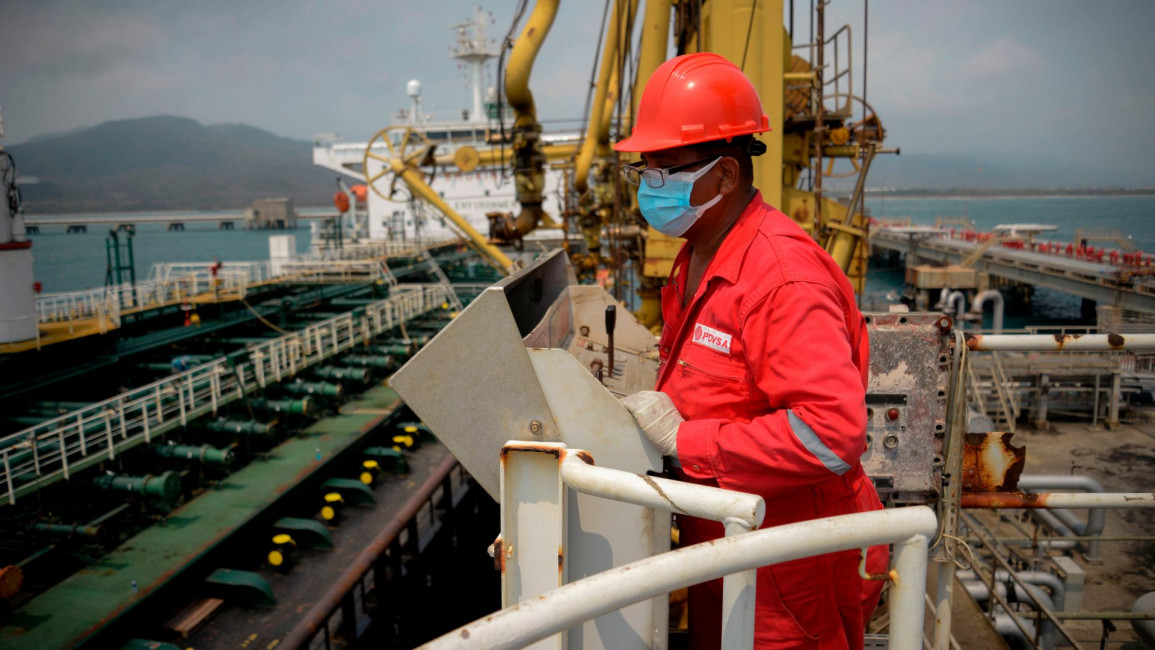Follow us on Facebook, Twitter and Instagram to stay connected
Fourth Iranian tanker docks at Venezuelan port
The vessel, called Faxon, docked at the Puerto la Cruz refinery in eastern Venezuela in the evening, Reuters reported. It is the fourth Iranian tanker to arrive in Venezuela this week.
Previously on the same day the Petunia tanker arrived at the El Palito port in western Venezuela, military officials announced, and a fifth tanker Clavel is expected in the coming days.
The first ship, Fortune, had anchored on Tuesday at El Palito. The port's refinery is able to process 140,000 barrels of oil a day.
The second tanker, Forest, arrived at the Paraguana refinery complex in northwestern Falcon state on Wednesday, Oil Minister Tareck El Aissami said on Twitter.
Venezuela is suffering from an acute fuel shortage.
The Paraguana refinery, the largest in Venezuela and one of the largest in the world, can process 950,000 barrels of fuel per day, but its production has plummeted alongside the country's crude supply.
The ships carry a total of 1.5 million barrels of gasoline, according to press reports.
The tankers "bring fuel, additives and spare parts, among other equipment, to increase our capacity for refining and oil production," El Aissami said Monday.
The United States has closely monitored the shipments, concerned that Iran and Venezuela - both under US sanctions - were taking their longstanding ties to a new strategic level.
The Iranian tankers have run the gauntlet of US warships arrayed off the Venezuelan coast after Washington announced last month that it was stepping up its naval presence, arguing there was an increase in organised crime.
Venezuela has been in recession for six years, its economy in shambles and its citizens struggling with shortages of basic necessities such as food and medicines.
US sanctions have targeted Venezuelan oil exports, starving Caracas of vital income. The US has also sanctioned El Aissami and accused him of drug trafficking.
Venezuela is almost entirely dependent on its oil revenues but its production has fallen to roughly a quarter of its 2008 level.
Venezuelan president Nicolas Maduro's government blames that on US sanctions, including against state oil company PDVSA, but many analysts say the regime has failed to invest in or maintain infrastructure.
Read more: Cash-strapped Venezuela empties vaults to send tons of gold to long-time ally Iran
Falling oil prices since 2014 have exacerbated Venezuela's economic crisis.
Venezuela has the world's largest proven oil reserves, but its capacity to refine crude into gasoline is limited.
Last month, the oil ministry revealed that the price of Venezuelan crude had fallen to its lowest level in more than two decades, at less than $10 a barrel. Last year it averaged $56.70.



